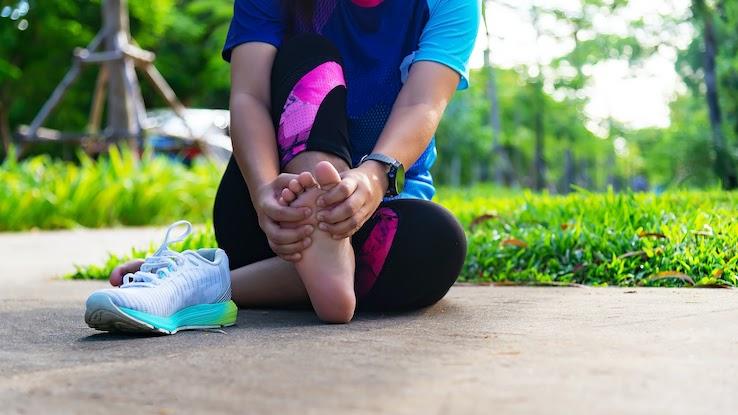
If you have persistent pain in your foot that mainly affects the arch or the heel, you might have plantar fasciitis. This is a condition in which your plantar fascia, a ligament in your foot that connects your toes to your heel, tightens up. This can lead to tiny tears, inflammation and a lot of pain. The pain is often most noticeable first thing in the morning when you’re getting out of bed, or after a period of prolonged sitting while you’re not putting pressure on your feet. It tends to go away once you’ve started using your foot again.
If you’ve been diagnosed with this condition, or if you have foot pain from running, plantar fasciitis foot exercises and stretches may help to relieve the pain. They serve to both stretch the area and strengthen it to reduce stress on the plantar fascia ligament. Luckily, stretching your feet and calves is simple and can offer significant pain relief. Keep in mind that, while these exercises are some of the most helpful for plantar fasciitis, it’s important to discuss them with your doctor or physical therapist in case there are any you should wait to attempt.
Standing Calf Stretch 1
Begin by standing arm’s length from a wall. Put your right foot behind your left foot, place your hands flat on the wall and slowly bend your left leg while moving your upper body toward the wall. Your right knee should remain straightened with your right heel on the floor. You should feel this stretch in the back of your right calf. Hold this position for 30 seconds before releasing. Repeat twice more on the same side, and then repeat on the opposite side.
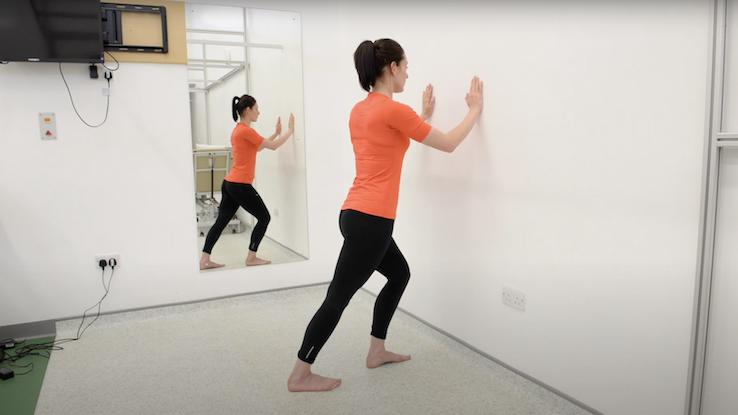
This stretch helps loosen the two major calf muscles, the soleus and the gastrocnemius. Both connect behind your knee and behind your heel. This connection behind your heel is why stretching your calf can help soothe plantar fasciitis pain.
Standing Calf Stretch 2
Start by standing with one heel very close to a wall and with that same foot’s toes pressed up against the wall slightly above your heel. Your heel should be as close to the wall as you can get it. Next, lift your hips and pelvis up close to the wall, keeping your balance with your hands on the wall as needed.
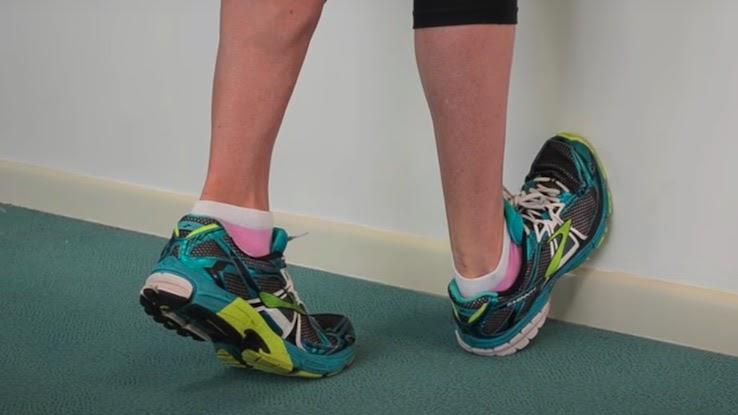
Using your back foot, you can push up onto your toes to increase the stretch. Make sure your front knee is straight for a deeper stretch into your calf and the arch of your foot. Hold this position for 30 seconds. Repeat twice with the same foot, and then switch to the other side and repeat.
This stretches both the calf muscles and the plantar fascia in your foot at the same time.
Seated Towel Calf Stretch
For this exercise, you’ll need a towel, a strap, a belt, a dog leash or any similar item that you can wrap around the bottom of your foot and hold with your hands at the same time. Begin by sitting on the floor with your legs out in front of you. Take the strap and wrap it around the ball of one of your feet. Pull on the strap with both hands. Your foot should be relaxed as you pull it toward you. You’ll feel the stretch in your foot and calf as you do this. Hold this stretch for 30 seconds, and then relax. Repeat the stretch two more times and switch to the other foot if needed.
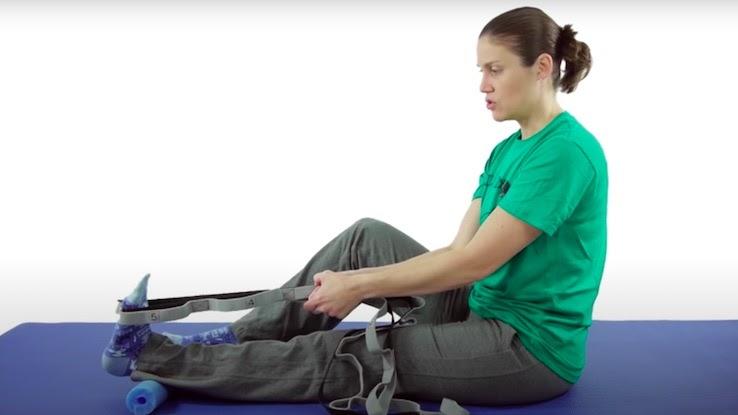
Plantar Fascia Step Stretch
Begin this exercise standing on a step in your home. Move your affected foot back so that the ball of that foot is resting on the step’s edge and the heel is hanging off. Your other foot should be planted firmly on the step. Next, lower the affected foot’s heel down toward the floor to the point where you feel both your calf and the arch of your foot stretching. Hold in this position for 30 seconds, and then release. Repeat this stretch two more times.
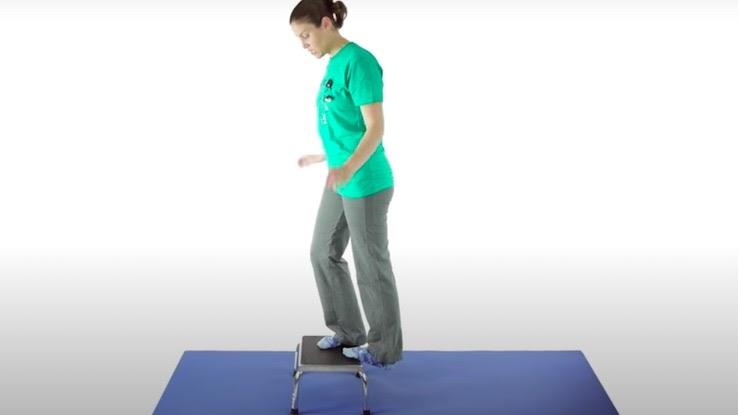
Towel Toe Curls
Place a small towel on the floor, and, while seated either on a chair or on the floor, put both of your feet on the towel. Using your affected foot, grab the towel with your toes and pull it toward you. You should feel the arch of your foot stretching. Now, relax your toes for a moment before repeating the motion. Do this for three minutes at a time a few times a day or when you feel plantar fasciitis pain.
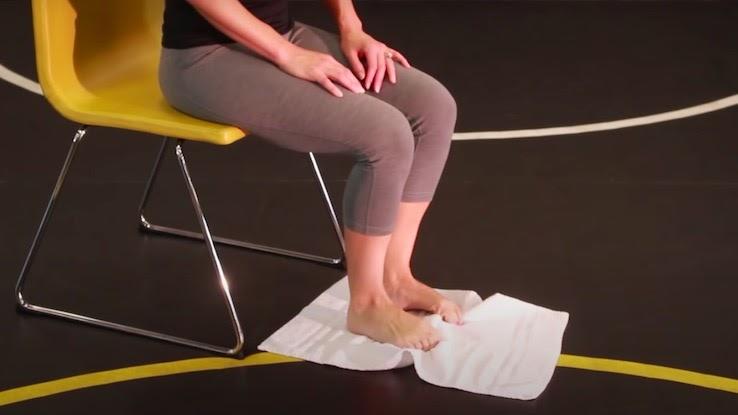
Tennis Ball Roll
You’ll need either a tennis ball or another ball of around the same size for this stretch. If you don’t have one, a water bottle can also work. Sit in a chair with the ball under your affected foot, and simply roll the ball back and forth under your foot’s arch with enough pressure so you can feel your plantar fascia stretching out. Keep rolling for three minutes. Ideally, you should do this exercise several times a day to help soothe pain.
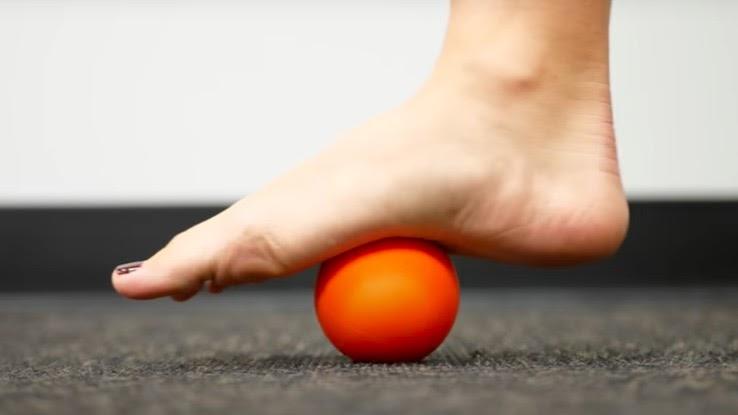
Simple Toe Stretches
This is an easy stretch that you can do pretty much any time and anywhere. Sitting on either a chair or the floor, cross your affected leg over your other leg so that your lower calf is resting just above your knee. Grab the toes of your affected foot and bend them upward until you feel stretching in the arch of your foot. At the same time, bend your ankle up slightly as well. You should feel a stretch both in the arch of your foot and your calf. With your other hand, start massaging the arch of your stretched foot. Do this for 10 seconds before releasing. Repeat this movement for up to three minutes.
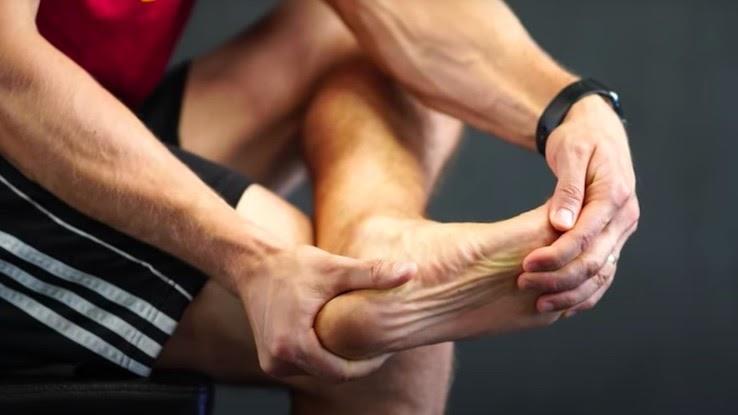
Tiptoe Stretches
Begin by standing in place with your feet about shoulder-width apart. Next, slowly raise both heels so you’re standing on your tiptoes and slowly lower your heels back down to the floor. Go up again, and then back down. This should be a stable, controlled, slow motion. You’ll feel the stretch in the arches of your feet.
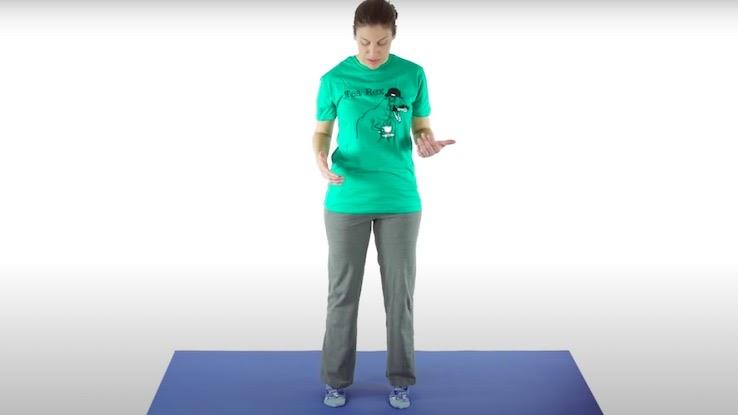
You may need to hold on to something to keep your balance, which is perfectly fine, especially if it helps you keep the motion as controlled as possible. This exercise both strengthens and stretches the plantar fascia.
Yoga Toes
Start in a standing position. Keep your big toes on the ground while raising all of your other toes. Then bring them back to the ground. Now lift your big toes while keeping your other toes on the ground. Alternate back and forth between these two motions for a few minutes. You’ll feel the stretch in the arch of your foot.
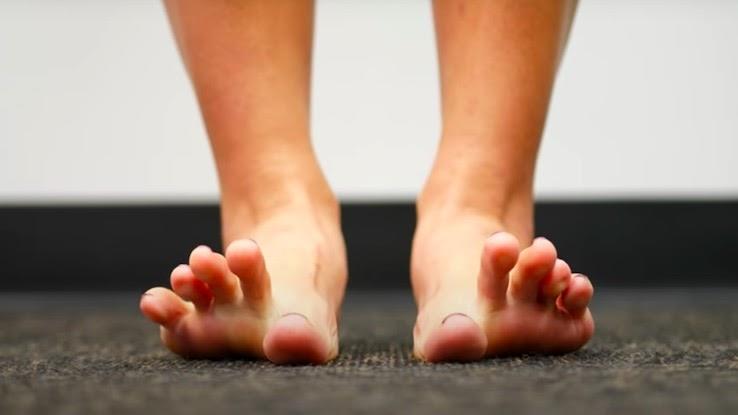
Resource Links:
https://www.mayoclinic.org/diseases-conditions/plantar-fasciitis/symptoms-causes/syc-20354846





